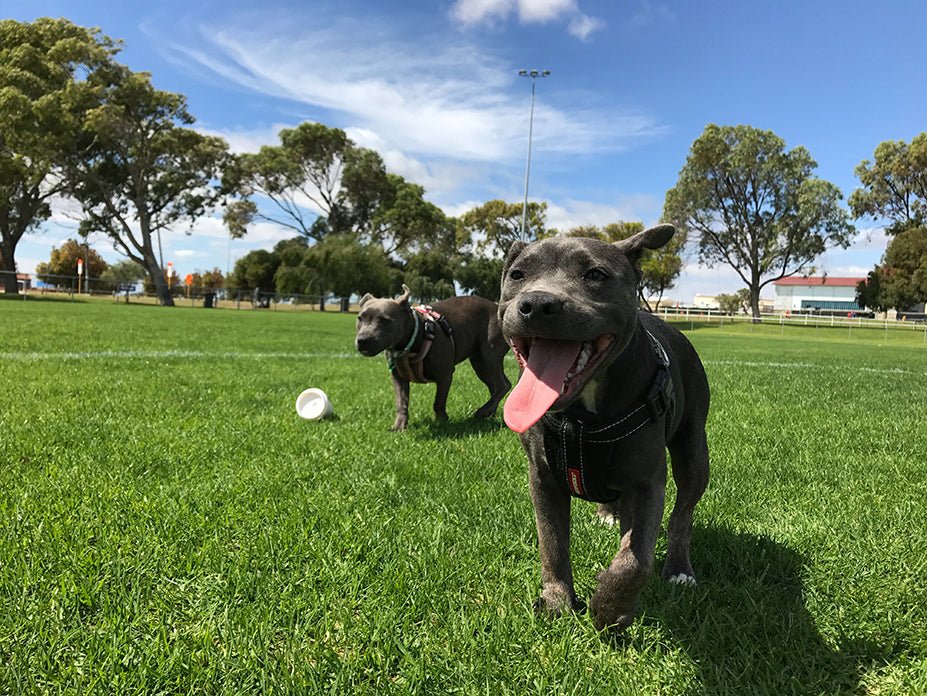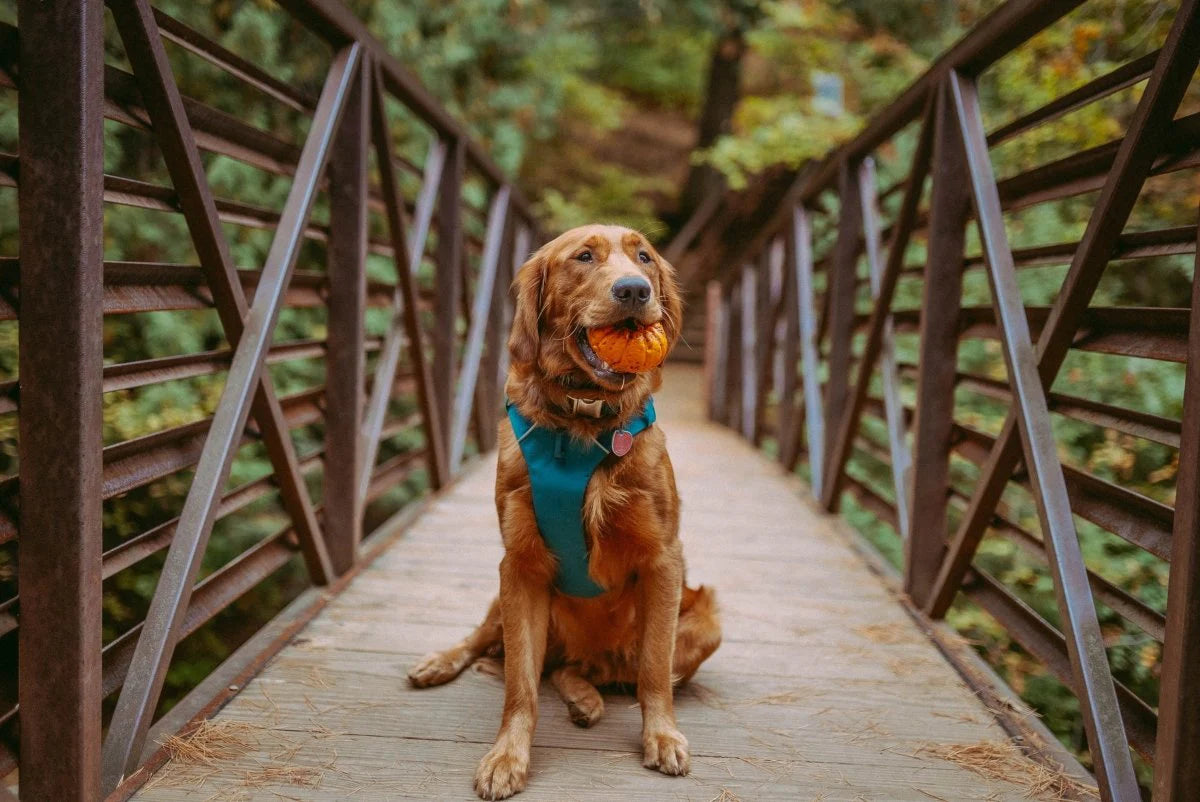The Dawn of Futuristic Poop Bags: A Journey into the Innovations in Biodegradable Technology
In the era of innovation and eco-friendly consciousness, dog waste disposal has been subjected to a makeover too! Let's journey into the realm of Futuristic Poop Bags and their groundbreaking breakthroughs in biodegradable technology.
Understanding the Need for Change in Dog Waste Bags
We've all been there - the early morning walks with our four-legged companions, the quick dash to the dog park, and the sudden realization that you've forgotten your dog waste bags at home. If this rings a bell, you're not alone. But do you ever stop to think about where these dog poop bags end up? It's not a pretty picture.
That's why we're here, not just to point out the problem, but to delve into a solution - biodegradable dog poop bags . By focusing on this ingenious innovation, we're making a step towards a greener and cleaner future.
The Downfall of Traditional Plastic Poop Bags: A Hard Truth
Let's take a step back and look at how we've been handling dog waste for years. Traditionally, the most common tool in a dog owner's arsenal has been the plastic dog poop bag. These bags are ubiquitous; you probably spot them dangling from dog leashes on your morning walks or neatly stacked in public parks' designated dispensers.
However, these plastic poop bags, despite their convenience, have an enormous downside. A single plastic bag can take anywhere from 10 to 1000 years to decompose , according to scientists. That's right, a thousand years. Imagine a world where every plastic bag ever produced still exists, slowly degrading and releasing toxins into the soil and water. Unfortunately, that's not a far-off fantasy; it's the reality we're living in today.
It gets worse. Not only do these bags take an obscenely long time to decompose, but they also aren't disposed of properly most of the time. Plastic poop bags often end up in landfills, where they're buried under mountains of other waste. In these conditions, it takes even longer for the bags to break down. Meanwhile, they're releasing harmful chemicals into the ground, polluting the soil and contaminating groundwater sources.
Now let's consider the sheer volume of these bags. A single dog can produce anywhere from half to over one pound of poop per day, depending on their size and diet. Multiply that by the estimated 500 million dogs worldwide, and you're looking at a colossal amount of dog waste being handled every day.
If each poop is wrapped in a plastic bag, that's hundreds of millions of plastic bags entering the environment every single day. With a decomposition time of centuries, it's easy to see how this could quickly get out of hand. These numbers paint a sobering picture of the ecological disaster we're facing, largely due to our over-reliance on plastic dog poop bags.
To make matters even grimmer, plastic poop bags aren't just harmful to the environment; they're also dangerous to wildlife. Birds, marine animals, and other wildlife can mistake plastic bags for food, leading to blockages, starvation, and eventually, death. It's a painful and unnecessary waste, one that could be entirely prevented with more sustainable waste disposal practices.
The cold truth is this: traditional plastic poop bags are causing irreversible damage to our planet. While they may offer convenience in the short term, their long-term impact is devastating and far-reaching.
It's clear that we need to rethink how we handle dog waste. Fortunately, there's a silver lining to this rather dismal cloud. There are now alternatives to plastic dog bags that are not just viable, but also sustainable and eco-friendly.
By transitioning to biodegradable poop bags , we can dramatically reduce the amount of plastic waste produced and the damage it does to our environment. It's time for us to move on from traditional plastic poop bags and embrace a future that respects and nurtures our planet. The time for change is now.
The Revolutionary Biodegradable Dog Poop Bags
Enter the future: biodegradable poop bags. This groundbreaking development ensures that your doggie poop bags don't spend centuries in a landfill. Instead, these dog poop bags break down in a relatively short period, leaving no harmful residues behind.
Delving into the Intricacies: The Science Behind Biodegradable Poop Bags
Upon hearing the term 'biodegradable poop bags,' one might be curious as to how they function and why they are superior to traditional plastic bags. After all, these seemingly simple waste disposal tools promise to play a significant role in reducing environmental harm. However, to understand their importance, we must first delve into the scientific principles that drive their function.
At the most basic level, 'biodegradable' refers to any material that can be broken down and decomposed by natural biological processes. Microorganisms, such as bacteria, fungi, and algae, play a crucial role in these processes, gradually breaking down materials into simpler substances. Unlike conventional plastic bags that resist these natural processes, biodegradable bags are designed to break down within a significantly shorter timeframe.
The Core Elements of Biodegradable Poop Bags
So, what exactly are these biodegradable dog poop bags made of? These ingenious bags are often crafted from plant-based materials such as cornstarch, polylactic acid (PLA) derived from fermented plant starch, and other compostable polymers. These materials possess an inherent advantage: they can decompose back into carbon dioxide, water, and biomass under the right conditions, leaving no trace of harmful residues.
The Decomposition Process
Unlike their plastic counterparts, biodegradable poop bags for dogs don't need a specific industrial process to decompose. They can break down in a backyard compost pile or bin, or even in a landfill given enough time. However, it's important to note that optimal decomposition requires a balance of heat, moisture, oxygen, and the presence of decomposing microorganisms. This means that while they will indeed decompose in a landfill, the process will be slower due to less-than-ideal conditions.
Time to Decompose: Setting Realistic Expectations
While it's easy to get excited about the promise of biodegradable poop bags, it's essential to set realistic expectations about their decomposition timeline. Unlike traditional bags that can last for centuries, biodegradable dog poop bags take considerably less time to break down - usually between 3-6 months. However, it's crucial to remember that the decomposition time can vary based on conditions such as temperature, humidity, and the presence of composting microbes.
Advantages Over Traditional Plastic Bags
The benefits of using biodegradable dog poop bags are manifold. Firstly, they help reduce the amount of plastic waste that finds its way into our oceans, landfills, and landscapes. Unlike traditional bags, they don't release toxic chemicals as they decompose, safeguarding soil health and preventing water sources' contamination.
Furthermore, they align with the rising trend of eco-conscious consumer choices. Using biodegradable poop bags demonstrates a commitment to sustainability and a proactive stance towards mitigating the impacts of climate change. Plus, their use can serve as a conversation starter, helping to raise awareness about sustainable practices among fellow dog owners.
Taking a Step Forward: A Call to Sustainable Action
The advent of biodegradable technology, such as compostable poop bags, is a beacon of hope in our ongoing battle against environmental degradation. By making the switch to biodegradable bags, we, as responsible pet parents, can play an active role in preserving our planet for future generations.
While these bags may seem like a small change, it's the cumulative effect of these small changes that can lead to significant positive impacts. As more and more people make the shift to biodegradable alternatives, we can hope to see a substantial reduction in plastic waste and a move towards a more sustainable future.
So, the next time you're out for a walk with your furry friend, consider choosing a biodegradable dog poop bag over a traditional plastic one. It's a simple decision with far-reaching benefits, a step forward in our shared journey towards sustainability. The science is clear, and the choice is ours to make. Let's make it count.
Comparing Dog Poop Bags
Biodegradable Technologies: Compostable bags Vs. Oxo-Biodegradable Bags
But wait, there's more to this sustainable poop bag saga. Biodegradable technologies come in different forms – compostable, biodegradable, and oxo-biodegradable bags . Each has its unique features, pros, and cons.
Compostable Dog Poop Bags
Compostable bags are the superhero of the biodegradable world. These bags decompose within a matter of weeks under the right conditions. Wondering what the pros and cons of compostable poop bags are? Head to our detailed guide to find out!
Oxo-Biodegradable Dog Poop Bags
Oxo-biodegradable bags are another variant that decomposes under exposure to heat, light, or mechanical stress. While not as eco-friendly as compostable bags, they are a better choice than traditional plastics.
Responsible Disposal: A Duty Towards the Environment
As pet parents, we share a universal responsibility towards the environment. While our dogs bring us immeasurable joy, they also contribute to an often overlooked ecological problem: pet waste. Dog poop alone may seem like a minor concern, but when you consider the number of dogs worldwide, it becomes apparent that responsible pet waste disposal is a vital part of our environmental stewardship.
The Unseen Impact of Pet Waste
Before we dive into responsible disposal methods, let's take a moment to understand why pet waste is an environmental issue. Surprisingly, dog poop is classified as a pollutant by the US Environmental Protection Agency, in the same category as insecticides, oil, grease, and toxic chemicals. It can harbor various disease-causing bacteria and parasites, which can contaminate water bodies and pose health risks to humans and animals alike.
Further, traditional plastic dog poop bags, commonly used for pet waste disposal, contribute to the ever-growing plastic waste problem. These plastic bags can take centuries to decompose, during which they leak harmful chemicals into the soil and water. Thus, it is clear that the way we handle dog waste significantly impacts our environment.
The Shift to Biodegradable and Compostable Bags
As awareness of this issue grows, dog owners are increasingly shifting to more sustainable options, with biodegradable dog poop bags being the preferred choice. Made from plant-based materials, these bags break down naturally over time, reducing plastic waste and its associated environmental impacts. They do not emit any harmful substances during decomposition, making them a safer alternative for the environment.
Proper Disposal of Biodegradable Bags
Now, while switching to biodegradable bags is a step in the right direction, it is equally essential to dispose of these bags correctly. Misconceptions often arise around the disposal of biodegradable bags, leading some to believe that they can be discarded anywhere due to their decomposable nature. However, this is an misunderstanding.
Although biodegradable poop bags break down faster than traditional bags, they still require specific conditions to decompose. These include exposure to sunlight, oxygen, and a suitable temperature and humidity level, conditions not typically found in landfills or in nature. Therefore, it is not advisable to leave these bags in parks, forests, or regular trash bins.
Embracing Composting
One effective method for disposing of biodegradable poop bags is composting. Composting involves breaking down organic matter (like biodegradable poop bags and dog waste) into nutrient-rich soil. However, it's crucial to note that dog waste should only be composted in designated pet waste composters. This is because compost piles for garden waste typically do not reach temperatures high enough to kill the pathogens present in pet waste.
Dedicated Dog Waste Bins
In many cities, you can find dedicated bins for dog waste disposal. These bins are periodically emptied, and the waste is often composted or processed in a way that minimizes environmental harm. If such facilities are available in your area, using them can significantly contribute to responsible waste disposal.
The Role of Pet Companies
Companies like NINA WOOF , renowned for their eco-friendly pet products, plays a crucial role in promoting responsible waste disposal. By offering biodegradable poop bags and educating pet owners about correct disposal methods, they contribute significantly to mitigating the environmental impact of pet waste.
Furthermore, these companies often produce accessories like stylish vegan leather poop bag dispensers , encouraging dog owners to always have biodegradable bags on hand. This helps instill a habit of responsible waste disposal, ensuring dog owners are well-equipped to deal with their pets' waste in an eco-friendly manner.
Final Thoughts
Understanding the importance of responsible waste disposal is the first step towards a more sustainable relationship with our environment. By simply making the switch to biodegradable poop bags and ensuring we dispose of them correctly, we can make a significant difference. Remember, every bag counts. Each time we choose to use a biodegradable bag, we contribute to a reduction in plastic waste and a healthier environment.
In essence, our responsibility extends beyond the well-being of our furry friends. As part of a global community, our actions affect the world around us. Therefore, it's our duty to dispose of pet waste responsibly and make decisions that reflect our commitment to environmental stewardship.

The Star Player: NINA WOOF Dog Poop Bags
NINA WOOF's compostable and biodegradable poop bags are leading the charge in this sustainable movement. Made from premium, plant-based materials, these bags are durable, leak-proof, and most importantly, kind to the environment.
A Stylish Companion: The Poop Bag Holder
Why carry your doggie bags in a boring old holder when you can flung them in a vegan leather poop bag dispenser ? These poop bag holders are not only trendy but also made from sustainable, recycled materials, cruelty-free materials.
The Final Verdict: Is the Switch Worth It?
Absolutely! Making the switch to biodegradable dog poop bags isn't just an environmentally conscious choice; it's a necessary one. The cost difference is minimal, and the long-term benefits for our planet are beyond measure.
Time to Take Action: Your Role in This Change
As pet parents, our responsibility extends beyond our furry friends. It's about ensuring a healthy planet for their future generations. By switching to biodegradable poop bags, you're playing a crucial part in this movement.
Conclusion
Biodegradable technology has truly revolutionized the way we view waste disposal. With futuristic poop bags leading the charge, we are one step closer to a sustainable future. The shift to biodegradable and compostable dog waste bags is not just a trend but a necessity in today's age. It's time we, as responsible pet parents, step up and make a difference.
Frequently Asked Questions
Q1: Where can I buy biodegradable dog poop bags?
A: You can find a variety of the best dog poop bags that are biodegradable and compostable poop bags on NINA WOOF . They also offer poop bag holders to carry your bags in style.
Q2: Are biodegradable poop bags safe to use?
A: Yes, biodegradable poop bags are safe to use. They are made from plant-based materials that decompose without leaving any harmful residues from the poop bag.
Q3: How long do biodegradable poop bags take to decompose?
A: The decomposition period for biodegradable poop bags depends on the type. Compostable bags decompose within weeks, while other types may take a few months.
Q4: Are NINA WOOF's dog waste bags durable?
A: Absolutely! Despite being eco-friendly, NINA WOOF's poop bags are highly durable and leak-proof.
Q5: What is the best way to dispose of biodegradable poop bags?
A: The best way to dispose of these bags is by composting them. Alternatively, you can dispose of them in bins designed for pet waste.
Additional Resources: Exploring More About Sustainable Pet Care
The journey towards sustainable pet care goes beyond simply changing the kind of compostable dog poop bags we use. It encompasses all aspects of how we care for our pets, from the food we feed them to the toys we buy, and even the way we groom them. Fortunately, there is an abundance of resources available for those interested in exploring this subject further.
At NINA WOOF , the focus is not just on providing premium, eco-friendly products for your pets but also on educating pet parents about sustainable practices. The company's website features a rich blog section , offering a plethora of articles addressing various aspects of sustainable pet care.
One key resource is a Comprehensive guide to the top eco-friendly alternatives to traditional poop bags . This guide is an excellent starting point for anyone interested in understanding the different options available in the market and making an informed decision on the best fit for their needs.
For those particularly interested in the science and specifics of different types of biodegradable bags, check out this comparison of compostable vs. biodegradable vs. oxo-biodegradable poop bags . It delves into the unique characteristics of each type, the pros and cons, and provides insights that can guide your choice.
Another recommended resource is an article discussing the benefits of biodegradable bags . This piece thoroughly discusses why making the switch from plastic bags is crucial and the significant positive impact it can have on the environment.
Lastly, for those grappling with how to dispose of these bags responsibly, this blog post on how long plastic dog poop bags take to decompose is a must-read. It sheds light on the long-lasting impact of plastic waste and emphasizes the need for a more sustainable alternative.
The key to sustainable pet care is continuous learning and improvement. As such, leveraging these resources can go a long way in helping us become more responsible pet parents and play our part in protecting the environment and using recycled materials.


